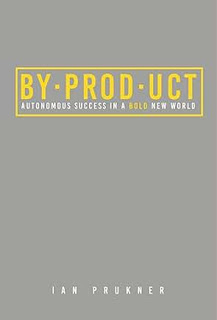Abstract
Cancelled Culture: is a term used to describe the phenomenon of people being ostracized or "cancelled" for their words or actions. This can happen on social media, in the workplace, or even in real life.
There are many reasons why someone might be cancelled. They might have said something offensive, made a mistake, or simply held a different opinion than the majority.
Cancelled culture has been criticized for being too quick to judge and for silencing people who are trying to have a conversation. However, it has also been praised for holding people accountable for their actions.
This abstract discusses the pros and cons of cancelled culture, and argues that it is a complex issue with both positive and negative potential consequences.
The abstract also provides some tips for participating in cancelled culture thoughtfully and respectfully.
Here are some keywords that could be used in the abstract:
* Cancelled culture
* Social media
* Accountability
* Free speech
* Harassment
* Bullying
* Conversation
* Context
* Intent
* Consequences
Introduction
Cancelled culture is a term used to describe the phenomenon of people being ostracized or "cancelled" for their words or actions. This can happen on social media, in the workplace, or even in real life.
There are many reasons why someone might be cancelled. They might have said something offensive, made a mistake, or simply held a different opinion than the majority.
Book: The Culture Book: When Culture Clicks | Turn Your Workplace into a Competitive Advantage | Unlock Your Company’s Potential, Maximize Return on Talent:https://amzn.to/3PuP6mn
Cancelled culture has been criticized for being too quick to judge and for silencing people who are trying to have a conversation. However, it has also been praised for holding people accountable for their actions.
Pros of Cancelled Culture
* Cancelled culture can help to hold people accountable for their actions. When people are faced with the consequences of their words or actions, they are more likely to think twice before doing something harmful.
* Cancelled culture can help to raise awareness of important issues. When people are cancelled for saying or doing something offensive, it can start a conversation about the issue and help to raise awareness of the harm that it can cause.
* Cancelled culture can help to create a more just and equitable society. When people are held accountable for their actions, it can help to create a society where everyone is treated with respect and dignity.
Cons of Cancelled Culture
* Cancelled culture can be too quick to judge. People are often cancelled based on a single incident or comment, without considering the context or intent of their words or actions.
* Cancelled culture can silence people who are trying to have a conversation. When people are afraid of being cancelled, they may be less likely to speak out about important issues.
* Cancelled culture can be used to bully and harass people. People who are cancelled may be subjected to online abuse and harassment, which can have a devastating impact on their mental health.
Conclusion
Cancelled culture is a complex issue with both pros and cons. It is important to weigh the potential benefits and risks before deciding whether or not to participate in it.
Call to Action
If you are considering participating in cancelled culture, it is important to do so thoughtfully and respectfully. Consider the context of the situation, the intent of the person's words or actions, and the potential consequences of your actions.
It is also important to be aware of the potential risks of participating in cancelled culture. You may be subjected to online abuse and harassment, and you may even lose your job or livelihood.
Ultimately, the decision of whether or not to participate in cancelled culture is a personal one. However, it is important to be aware of the potential consequences of your actions before you make a decision.
Sources
Here are some sources about cancelled culture:
* **"Cancel Culture: The Pros and Cons of Holding People Accountable"** by Bard. This article provides an overview of cancelled culture, discussing the pros and cons of the phenomenon.
* **"The History of Cancel Culture"** by The New York Times. This article traces the history of cancelled culture, from its origins in the early days of the internet to its current prominence.
* **"What is Cancel Culture?"** by Pew Research Center. This article provides a definition of cancelled culture and discusses the public's views on the phenomenon.
* **"The Dangers of Cancel Culture"** by The Atlantic. This article argues that cancelled culture can be harmful to free speech and can silence important conversations.
* **"The Case for Cancel Culture"** by The Guardian. This article argues that cancelled culture can be a force for good, holding people accountable for their actions and creating a more just society.
I hope this helps!










